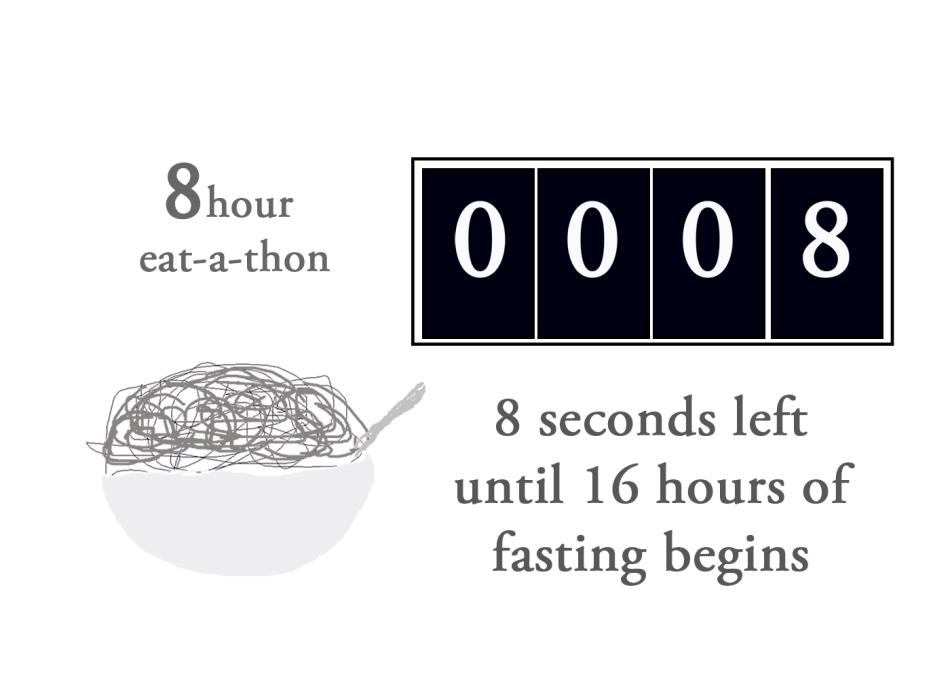Intermittent fasting offers different lifestyles
The benefits to the dieting trend intermittent fasting has some people asking, is breakfast really the most important meal of the day?
The diet industry capitalizes on selling weight loss seekers miracle pills or ‘cleanses’ that make bold claims that too often end up falling short.
Intermittent fasting isn’t a trend diet but rather a lifestyle change. In order to achieve any result that you are looking for, you must fast for at least 16 hours with an eight-hour window to consume food. For example when practicing intermittent fasting, you should only eat from 11 a.m. to 7 p.m., or whatever time period fits your schedule.
“I have always read about how you have to eat a big meal in the morning,” said Samantha White, a senior at CSUEB, “but after reading about intermittent fasting, maybe its not.”
The 16-hour fast is required for the eating pattern to be effective because it takes about eight hours for your body to burn your glycogen stores and allows your body to start burning fat.
According to Dr. Joseph Mercola, an osteopathic physician that specializes in alternative medicine, if you replenish your glycogen levels by eating every few hours, your body won’t be able to use your stored fat as energy fuel, and the fast will be ineffective with controlling or losing weight.
“If executed properly, for example with the right amount of calories built to support healthy weight loss, intermittent fasting is another method dieters can consider in their arsenal to lose weight fast,” said Christy Lauren Poole, owner of Poole Performance and Nutrition.
The biggest mistake people make that are integrating intermittent fasting into their lifestyle is seeing it as a quick diet rather than a simple eating pattern. “Maintenance isn’t structured to a diet, it’s a lifestyle and in order to transition back to a normal life you cant go back to what got you there in the first place,” said Poole, “you can’t live on a diet forever.”
Intermittent fasting isn’t that easy, but it’s really helped me,” said Marcelle Levine, a CSUEB alumnus. “Even though the fasting helps, it really comes down to what you eat.”
The key to a healthier lifestyle and maximizing the fasting process is to increase your intake of lean proteins and vegetables during your ‘consumption’ window. By constricting your carbohydrate intake you will modify your body into fat burning mode rather than a simple carbohydrate-burning mode.
“I think those that succeed have realistic goals and understand that its not just about eating at certain times, but for fueling the body for what it needs and paying attention to all the details of their body’s needs,” said Poole.
For an effective way to lose those few extra pounds, simply reevaluate your eating habits. Readjust when you eat, and more importantly what you eat.







